Abstract
The binding of N-methylscopolamine (NMS) and carbachol to muscarinic receptors in the rat heart has been measured as a function of ionic strength (mu). The binding of NMS was reduced by 3.69 fold for a 10 fold increase in ionic strength. The binding of carbachol was affected in two ways. Firstly, the proportions of the subsites were changed. Above mu = 0.5 M, the superhigh (SH) subsite was converted into the low (L) subsite and above mu = 0.8 M, the high (H) subsite was also converted into the L subsite. Therefore, at high ionic strength, no agonist-determined subsites can be detected. In addition, increase in ionic strength reduced the binding of carbachol to all subsites and to a much greater extent than for NMS.
Full text
PDF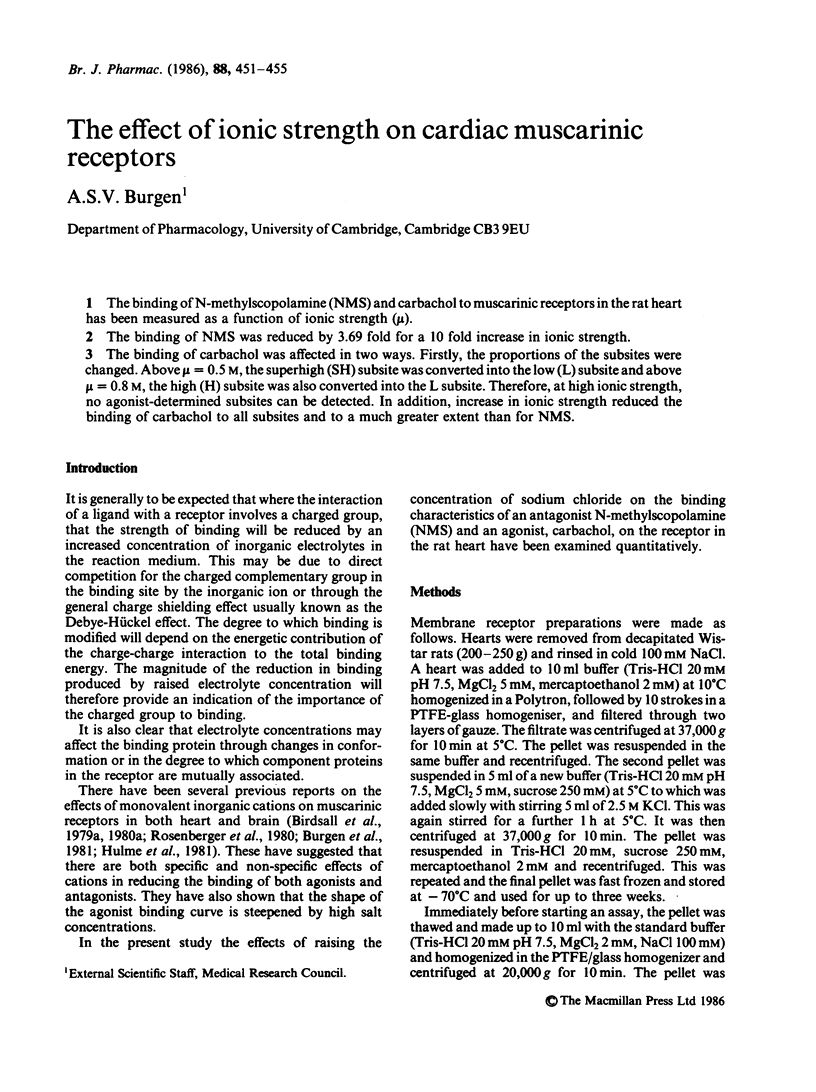
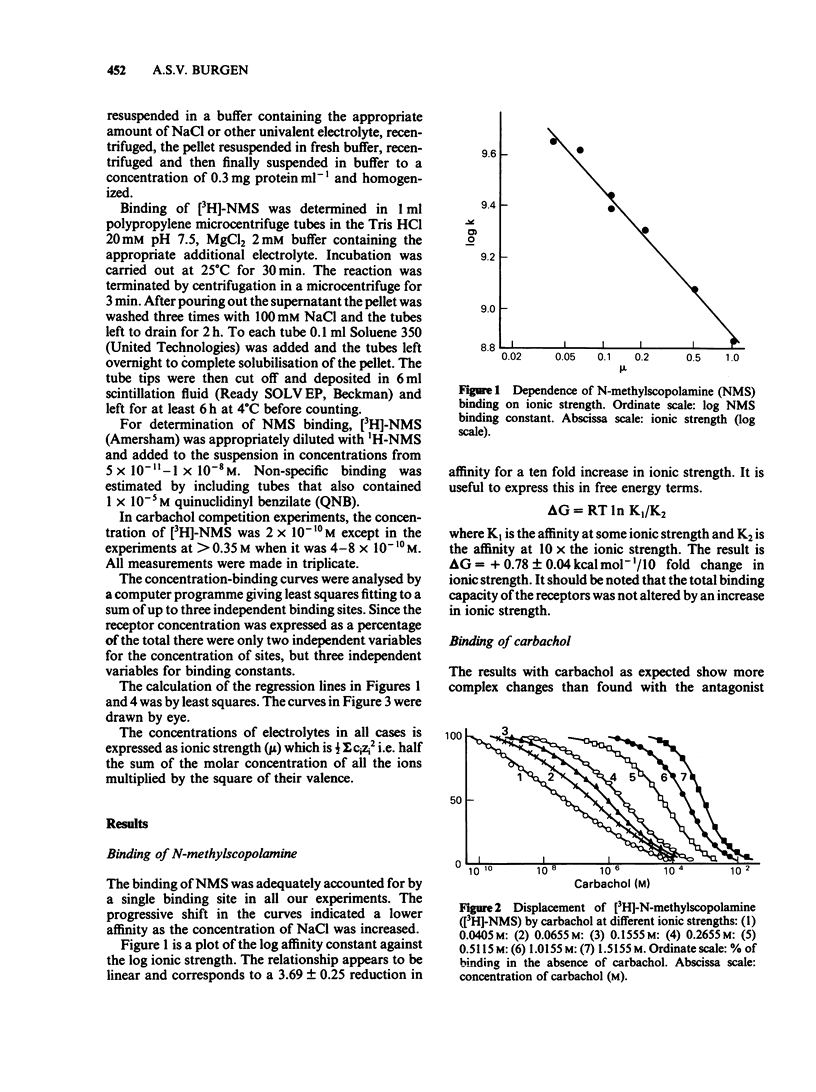
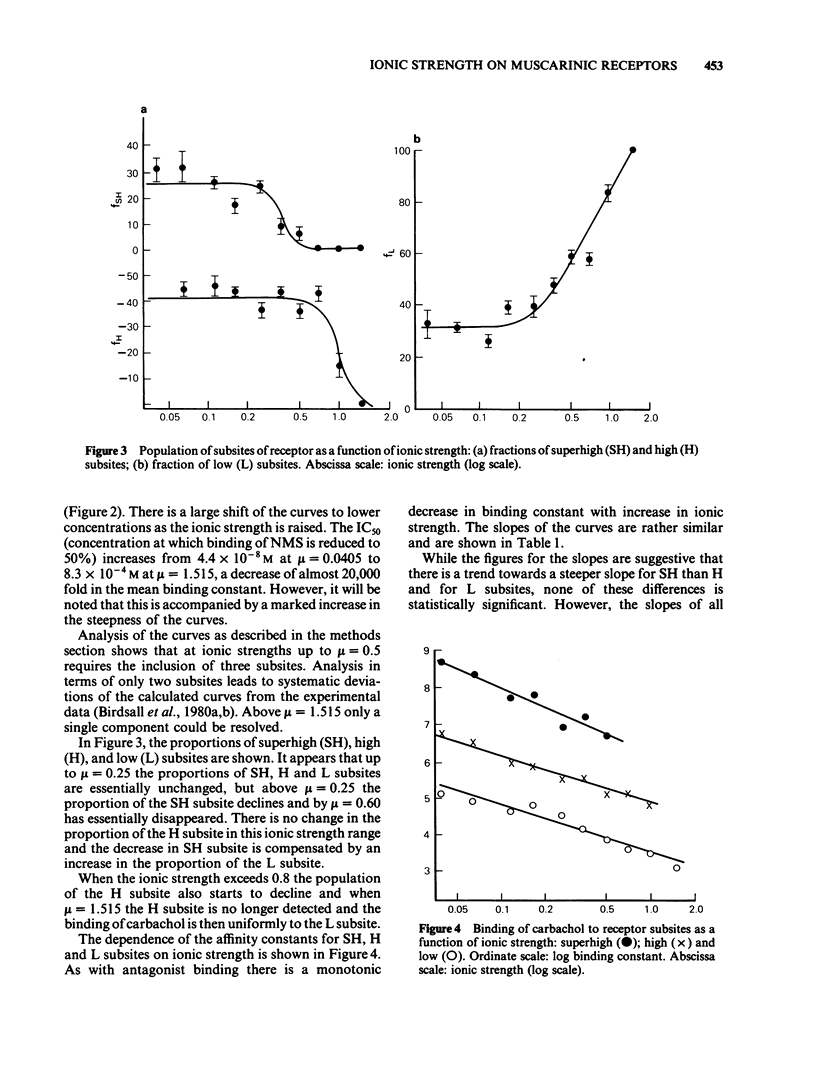
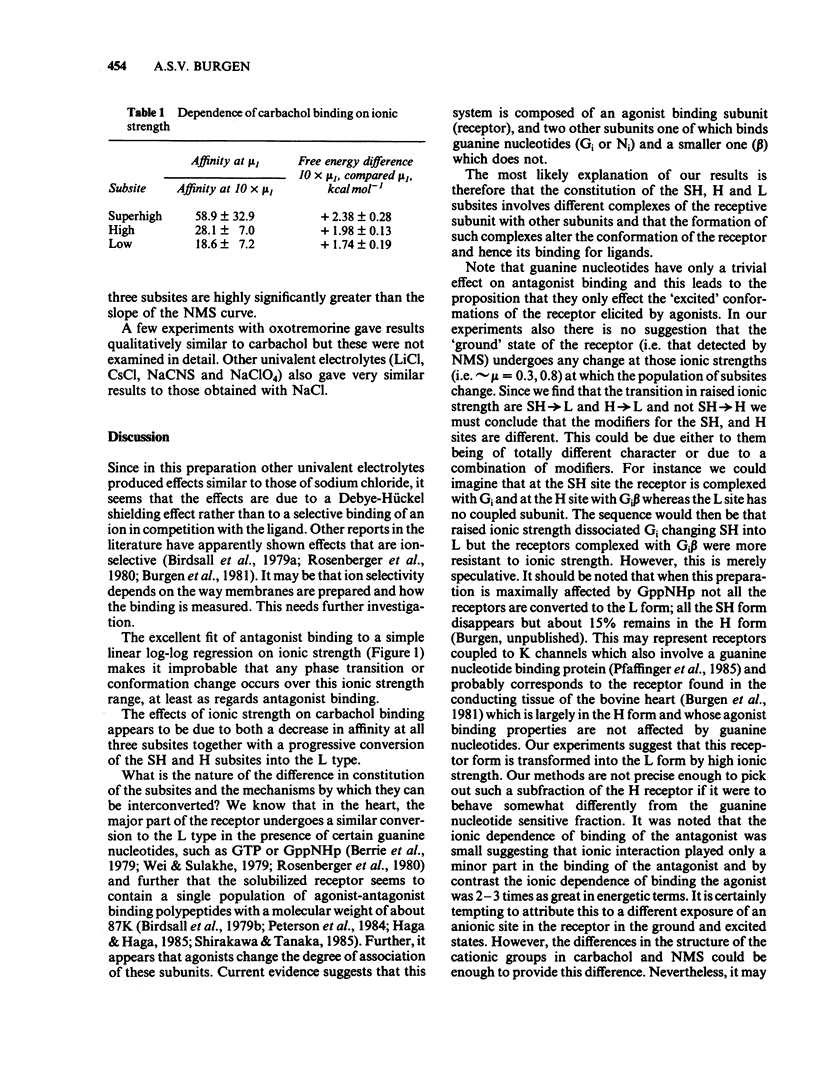
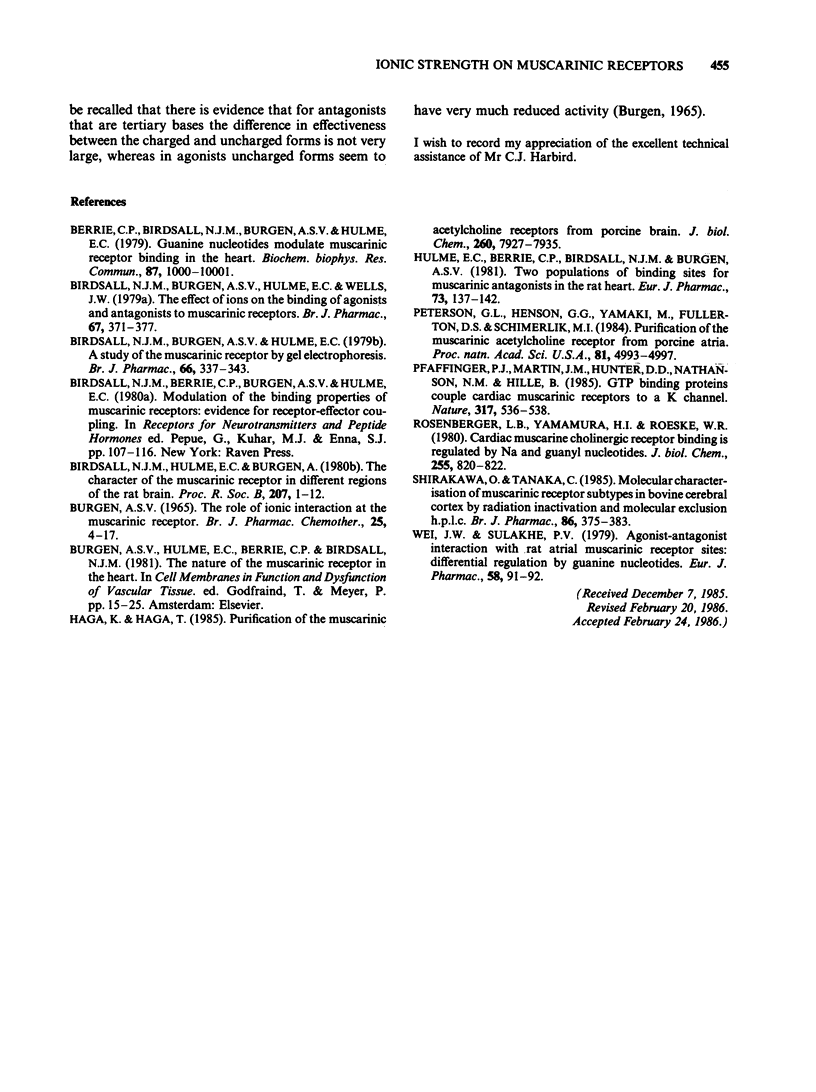
Selected References
These references are in PubMed. This may not be the complete list of references from this article.
- Berrie C. P., Birdsall N. J., Burgen A. S., Hulme E. C. Guanine nucleotides modulate muscarinic receptor binding in the heart. Biochem Biophys Res Commun. 1979 Apr 27;87(4):1000–1005. doi: 10.1016/s0006-291x(79)80006-6. [DOI] [PubMed] [Google Scholar]
- Birdsall N. J., Burgen A. S., Hulme E. C. A study of the muscarinic receptor by gel electrophoresis. Br J Pharmacol. 1979 Jun;66(2):337–342. doi: 10.1111/j.1476-5381.1979.tb13685.x. [DOI] [PMC free article] [PubMed] [Google Scholar]
- Birdsall N. J., Burgen A. S., Hulme E. C., Wells J. W. The effects of ions on the binding of agonists and antagonists to muscarinic receptors. Br J Pharmacol. 1979 Nov;67(3):371–377. doi: 10.1111/j.1476-5381.1979.tb08690.x. [DOI] [PMC free article] [PubMed] [Google Scholar]
- Birdsall N. J., Hulme E. C., Burgen A. The character of the muscarinic receptors in different regions of the rat brain. Proc R Soc Lond B Biol Sci. 1980 Feb 13;207(1166):1–12. doi: 10.1098/rspb.1980.0011. [DOI] [PubMed] [Google Scholar]
- Haga K., Haga T. Purification of the muscarinic acetylcholine receptor from porcine brain. J Biol Chem. 1985 Jul 5;260(13):7927–7935. [PubMed] [Google Scholar]
- Hulme E. C., Berrie C. P., Birdsall N. J., Burgen A. S. Two populations of binding sites for muscarinic antagonists in the rat heart. Eur J Pharmacol. 1981 Jul 17;73(2-3):137–142. doi: 10.1016/0014-2999(81)90085-6. [DOI] [PubMed] [Google Scholar]
- Peterson G. L., Herron G. S., Yamaki M., Fullerton D. S., Schimerlik M. I. Purification of the muscarinic acetylcholine receptor from porcine atria. Proc Natl Acad Sci U S A. 1984 Aug;81(15):4993–4997. doi: 10.1073/pnas.81.15.4993. [DOI] [PMC free article] [PubMed] [Google Scholar]
- Pfaffinger P. J., Martin J. M., Hunter D. D., Nathanson N. M., Hille B. GTP-binding proteins couple cardiac muscarinic receptors to a K channel. Nature. 1985 Oct 10;317(6037):536–538. doi: 10.1038/317536a0. [DOI] [PubMed] [Google Scholar]
- Rosenberger L. B., Yamamura H. I., Roeske W. R. Cardiac muscarinic cholinergic receptor binding is regulated by Na+ and guanyl nucleotides. J Biol Chem. 1980 Feb 10;255(3):820–823. [PubMed] [Google Scholar]
- Shirakawa O., Tanaka C. Molecular characterization of muscarinic receptor subtypes in bovine cerebral cortex by radiation inactivation and molecular exclusion h.p.l.c. Br J Pharmacol. 1985 Oct;86(2):375–383. doi: 10.1111/j.1476-5381.1985.tb08906.x. [DOI] [PMC free article] [PubMed] [Google Scholar]
- Wei J. W., Sulakhe P. V. Agonist-antagonist interactions with rat atrial muscarinic cholinergic receptor sites: differential regulation by guanine nucleotides. Eur J Pharmacol. 1979 Sep 1;58(1):91–92. doi: 10.1016/0014-2999(79)90346-7. [DOI] [PubMed] [Google Scholar]


